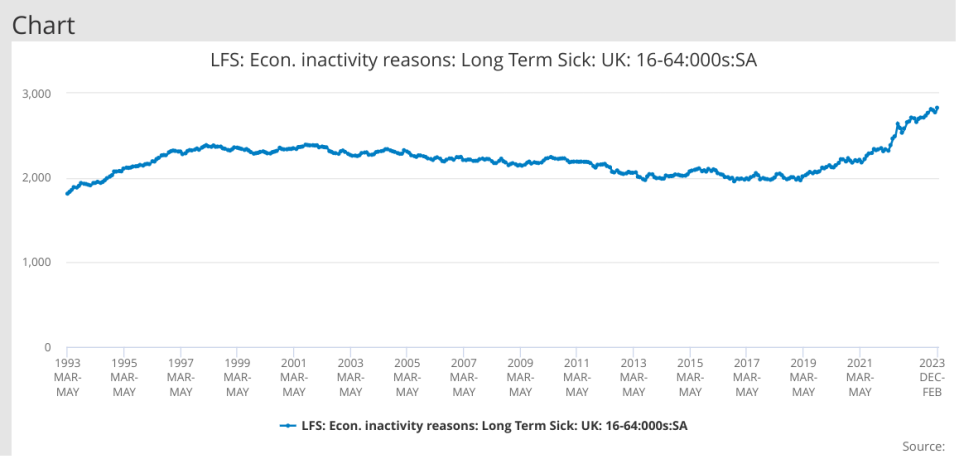Action ‘urgently needed’ as UK long-term sickness climbs to record high of 2.8m

The number of people out of work due to long-term sickness rose to a new record high as the UK economy continues to be held back by an increasingly unhealthy workforce.
According to the latest figures from the Office for National Statistics (ONS), over 2.8m people were out of work due to ill-health between December and February, up from around 2.1m pre-pandemic.
Young people struggling with poor mental health have been major drivers of the increase. Increases in economic inactivity over the latest quarter were driven by those aged 16 to 34 years.
Recent research from the Resolution Foundation found that the rise in long-term sickness over the past few years is the longest sustained rise since the 1990s.

It means the UK is the only G7 economy where employment has not returned to its pre-pandemic level.
Alongside an increase in the number of students, this brought the economic inactivity rate to 22.2 per cent, its highest level in eight years.
Economists have warned that the relatively high levels of economic inactivity, when people are out of work and not looking for a job, has exacerbated the UK’s inflationary issues by reducing the potential supply side of the economy.
Tackling inactivity is a key campaign pledge for both the Conservatives and Labour parties ahead of this year’s election.
Think tanks and business groups agreed that addressing long-term sickness should be a major priority for the next government.
“Rising inactivity and long-term sickness suggest there are wider issues with the health of our workforce,” Charlie McCurdy, economist at the Resolution Foundation, said.
“Tackling rising inactivity – and its impact on the public finances, the benefits system, and people’s wider health and wellbeing – is one of the biggest economic challenges facing both this government, and whoever wins the next election,” he continued.
The Office of Budget Responsibility (OBR) estimates that the rise in inactivity will force up spending on disability benefit by 45 per cent, an increase of £16.1bn.
Alexandra Hall-Chen, principal policy advisor at the Institute of Directors, said the rise was a “worrying development” which had the “potential to exacerbate persistent skills and labour shortages in the UK”.
“More action from government is urgently needed to increase domestic labour supply,” she said.